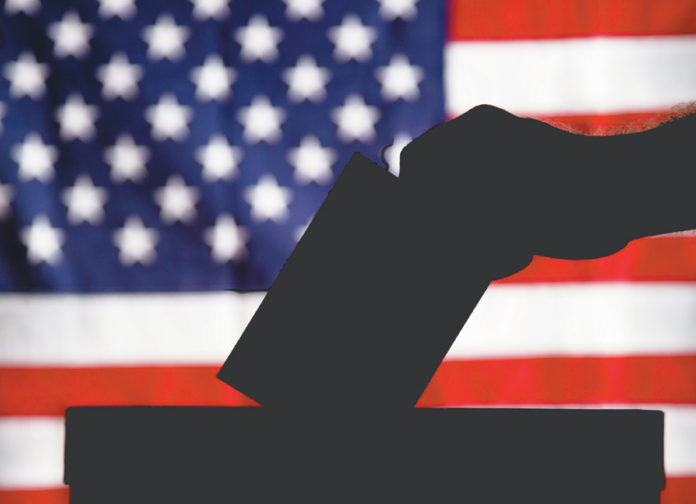A group of Hollister residents who hope to unseat the mayor in a recall election are now blaming City Clerk Christine Black after their required public noticing paperwork was rejected for the second time.
The citizens group known as Recall Velazquez sent out a press release May 19 accusing Black of “obstructionist tactics” and providing cover for Mayor Ignacio Velazquez because she has not accepted the group’s notice of intention to circulate a recall petition.
But Black, in an interview with the Free Lance, said she rejected two notices of intention submitted by the group because they contained incorrect or incomplete information. She said by law, she cannot approve such a legal notice unless the information contained within it is complete and accurate; otherwise, any deficiencies with the paperwork could derail the entire democratic effort later on in the process.
“How can citizens exercise their First Amendment rights to petition their government if the City Clerk refuses to allow them to do so?” Recall Velazquez Chairperson Celeste Toledo-Bocanegra said in the May 19 press release. “How can we correct our Notice of Intention if she refuses to let us know what to do? Does she even know herself or is the mayor pulling her strings behind the scenes, hoping to stall and delay this process?”
The group also takes issue with the city clerk’s refusal “to inform us of the corrections that needed to be made after the first notice submitted.”
But that’s another area where Black is restricted by the law, she said. As the city clerk, she has to remain impartial and can only identify which part or parts of the notice are incorrect; she cannot advise proponents on how to correct the inaccuracies under state election law because she could get in trouble if her advice turns out to be wrong, she said.
And Black denied that she is trying to protect the mayor from being recalled.
“Legally, I cannot walk them through the process,” Black said. “I’ve urged them over and over to hire an elections attorney. When they give me the notice of intention, all I can do is see if it complies with the elections code.”
Under state law, filing a notice of intention is the first step in any citizen’s effort to force an election to recall a previously elected, currently serving official. The proponent of the recall election is required to provide a list of information, names and signatures of proponents, plus other details required on the notice of intention. The requirements are listed on the California Secretary of State’s website.
“The proponents should ensure that the notice of intention complies with California law. If a notice of intention is found to be deficient, the proponents will be required to prepare a new notice of intention, including the collection of signatures,” says the Secretary of State’s Procedures for Recalling State and Local Officials.
After the notice of intention is approved, the proponent must serve and file the document before publishing it in the local newspaper. After giving the recallee—in this case, Velazquez—a chance to respond, the recall proponents can prepare and begin circulating a petition. They must collect verifiable signatures from 20 percent of the local electorate in order to place the recall election on the ballot.
In Hollister, the Recall Velazquez group would have to collect at least 4,389.2 signatures for the recall election to move forward, Black said.
The Recall Velazquez Committee first submitted a notice of intention on March 31. Black said the notice was missing required information for three of 21 proponents who signed the paperwork.
The group then submitted a second notice of intention on May 5, which completed the proponents’ information. However, Black noticed that the proponent had written the incorrect elections code number on the document.
Black’s May 17 letter was in response to an email she received from Toledo-Bocanegra on May 11 on behalf of the Recall Velazquez group. The May 11 letter lists the group’s grievances with Black’s rejection of their notices, including a concern that while the code citation was incorrect on the initial March 31 filing, Black did not inform them of this error until after the second attempt. “We could have made the correction on our second notice had you informed us,” the letter states.
Black’s lengthy May 17 response offers her answers to the group’s concerns and questions, and seeks to “correct the record” of claims made by Toledo-Bocanegra, Black wrote in her response.
Toledo-Bocanegra said in the press release that Recall Velazquez plans to submit a third notice of intention, but they have not done so yet.
“In sum, the City Clerk’s Office takes its role in recall elections very seriously,” Black’s letter said, in part. “We act as the impartial ‘referee’—taking no sides but merely ensuring that everyone follows the rules. While emotions in recall proceedings can be high on both sides, I ask that you not misplace your political anger with the mayor upon my office.”
Recall Velazquez Vice Chairman Andrew Russo said it is “concerning” that Black does not feel obligated to advise the recall proponents on how to be in compliance. “How are we supposed to go through this process if we don’t have a city clerk to tell us?”
The group has received free legal advice from an attorney, but Russo declined to name that adviser.
“This process has been extended and delayed, either from incompetence or obstruction,” Russo said.
Toledo-Bocanegra has wanted to recall Velazquez from office since she created a GoFundMe account in January. The page accuses Velazquez of creating divisiveness in Hollister, and denounces his support for Covid-19 restrictions and mask mandates.
Russo said the group does not have a candidate in mind to run against Velazquez if there is a recall election, but some residents have shown interest.










